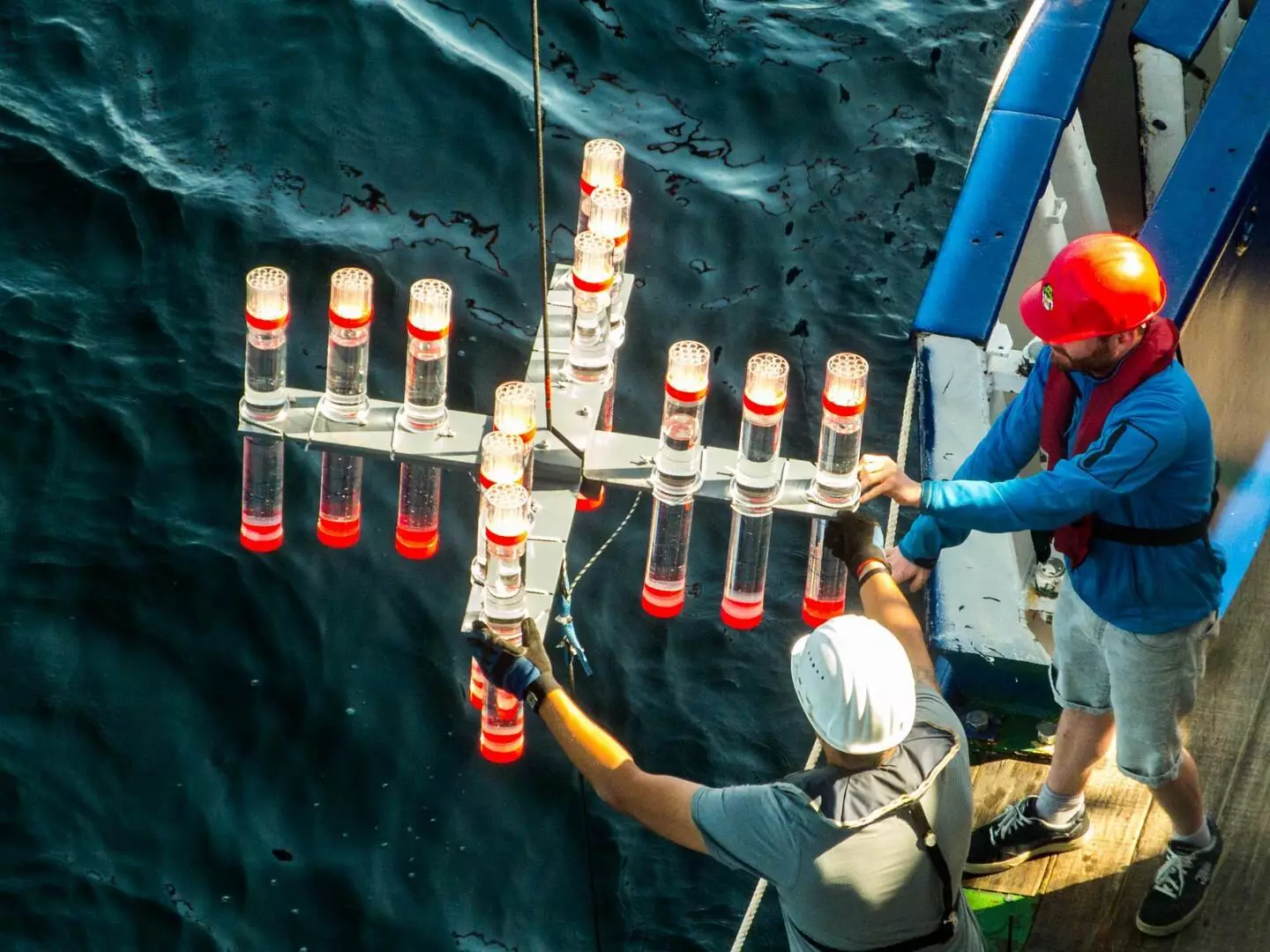The global carbon cycle is a complex system influenced by various factors, and marine organisms play a crucial role in this process. Phytoplankton, for example, absorb carbon dioxide from the atmosphere and sequester it in organic matter that sinks to the deep ocean. This process, known as the biological carbon pump, has long been thought to be particularly efficient in oxygen-poor areas. However, a recent study by researchers at the GEOMAR Helmholtz Center for Ocean Research Kiel challenges this assumption and suggests that the influence of certain zooplankton species on the biological carbon pump has been underestimated.
Traditionally, it was believed that areas with an oxygen minimum zone (OMZ) below the surface were the most efficient in terms of the biological carbon pump. The lack of oxygen in these areas was thought to prevent particle consumers like zooplankton from effectively reducing the export of carbon to the deep sea. However, the new study conducted by the researchers at GEOMAR suggests that this assumption may not hold true in all cases. By focusing on the tropical upwelling system off the coast of Peru, they were able to demonstrate the significant influence that zooplankton species can have on the efficiency of the biological carbon pump.
The researchers collected samples in the Humboldt Current, which is known for its millennia-old permanent oxygen minimum zone. By deploying drifting sediment traps and using various tools to obtain high-resolution data on the occurrence of zooplankton species, they were able to observe and analyze carbon fluxes in the region. Surprisingly, they found that zooplankton species that are tolerant of oxygen deficiency actually consume sinking particles, thereby reducing the export of carbon to the deep sea. This challenges the prevailing assumption of a uniformly efficient biological carbon pump in oxygen minimum zones.
Dr. Anja Engel, the corresponding author of the study, highlights the importance of zooplankton in regulating the carbon pump. She explains that the zooplankton species found off the coast of Peru are well adapted to living under low-oxygen conditions and actively interact with sinking particles. This interaction ultimately results in a reduction of carbon export to the deep sea. The researchers emphasize the need for further observations and knowledge of deep-sea ecosystems in order to make accurate predictions about the marine carbon cycle.
The findings of this study have significant implications for our understanding of the global carbon cycle. The previously underestimated role of zooplankton in the biological carbon pump highlights the complexities of this process and the need for further research. By expanding our knowledge of deep-sea ecosystems and the interactions between different marine organisms and sinking particles, we can improve our ability to accurately predict and model carbon fluxes in the ocean.
The study conducted by researchers at the GEOMAR Helmholtz Center for Ocean Research Kiel reveals the important role of zooplankton in the efficiency of the biological carbon pump. Contrary to previous assumptions, zooplankton species that are tolerant of oxygen deficiency actively interact with sinking particles and reduce the export of carbon to the deep sea. This challenges our understanding of the role of oxygen minimum zones in the carbon cycle and emphasizes the need for further research in order to make reliable predictions about the marine carbon cycle. By unraveling the complexities of the biological carbon pump, we can gain valuable insights into the global carbon cycle and its future implications.


Leave a Reply